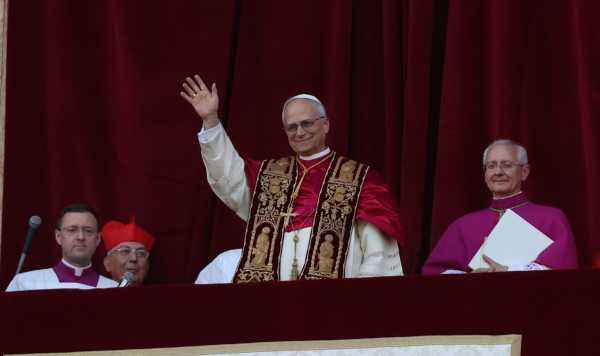The Pope's connection to the United States goes much deeper than you might imagine.

Credit: Marco Iabucci Epp/Shutterstock Loading the Elevenlabs Text to Speech AudioNative player…
Those who try to understand Pope Leo VIX by examining his social media miss the bigger picture beyond the tweets. Robert Prevost did not convey a coherent view when he was reposting sporadically while in the thick of his pressing duties as a bishop and then a cardinal. Pope Leo, for his part, is carefully laying the groundwork for what looks like thoughtful and powerful teaching in the coming years. While much remains to be seen, the initial direction is clear.
Every pope draws inspiration from many predecessors, but the name he chooses points to the legacy he values most. His namesake, Pope Leo XIII (1878–1903), was a key figure who actively confronted contemporary challenges that remain relevant today, especially in the areas of labor and capital in a rapidly changing world. His encyclical Rerum novarum is considered the foundation of modern Catholic social and economic teaching. His first address to the College of Cardinals cited him as the primary inspiration for his name. So to understand the new Pope Leo, it is necessary to examine the legacy of the old one. Fortunately, the return to Leo XIII offers great hope for the world, and for America in particular.
As the last pope of the 19th century and the first pope of the 20th century, Leo XIII lived in a turbulent tiempos. Politically, aggressively secular, often socialist movements were replacing the Christian confessional states of the past. Socially, the Industrial Revolution had transformed the relationship between labor and capital. Leo’s two most important texts on these changes are Immortale Dei, a work on the Christian constitution of states, and the aforementioned Rerum novarum.
At first glance, Immortale Dei might seem an odd text to mention in the context of an American pope. In it, Leo XIII argues that the best form of government is a Catholic confessional state. He laments that “government is neither more nor less than the will of the people… only its own ruler.” This might seem like a harsh indictment of American democracy. However, a full reading of the text reveals that Leo’s objection is not to democracy itself, but to any form of government that places itself in opposition to God’s law, especially natural law. He rails against those governments of his day that led their citizens “to think, therefore, that there is no difference in matters of religion… which is the same as atheism.”
Pope Leo XIV echoed this message in his first homily when he lamented that people often perceive Jesus as one teacher among many and thus live in a state of “practical atheism,” saying, “The absence of faith is often tragically accompanied by a loss of meaning in life, a disregard for charity, terrible violations of human dignity, a crisis of the family, and many other wounds that afflict our society.” Leo emphasizes how closely faith is linked to a healthy society. This teaching comes straight from the heart of Immortale Dei.
Some may object that Leo XIII advocated a fully Catholic state, something that modern popes have said little about and that Leo XIV is unlikely to advocate. However, they must understand that Leo XIII was writing primarily to “all the peoples of the Catholic world,” namely those states that had previously been predominantly Catholic. Leo holds up the Catholic state as an ideal, but acknowledges that “the Church is accustomed to take serious care that no one should be forced to embrace the Catholic faith against his will, for, as Saint Augustus wisely reminds us,
Sourse: theamericanconservative.com






